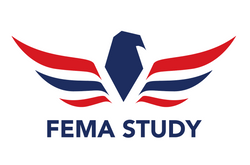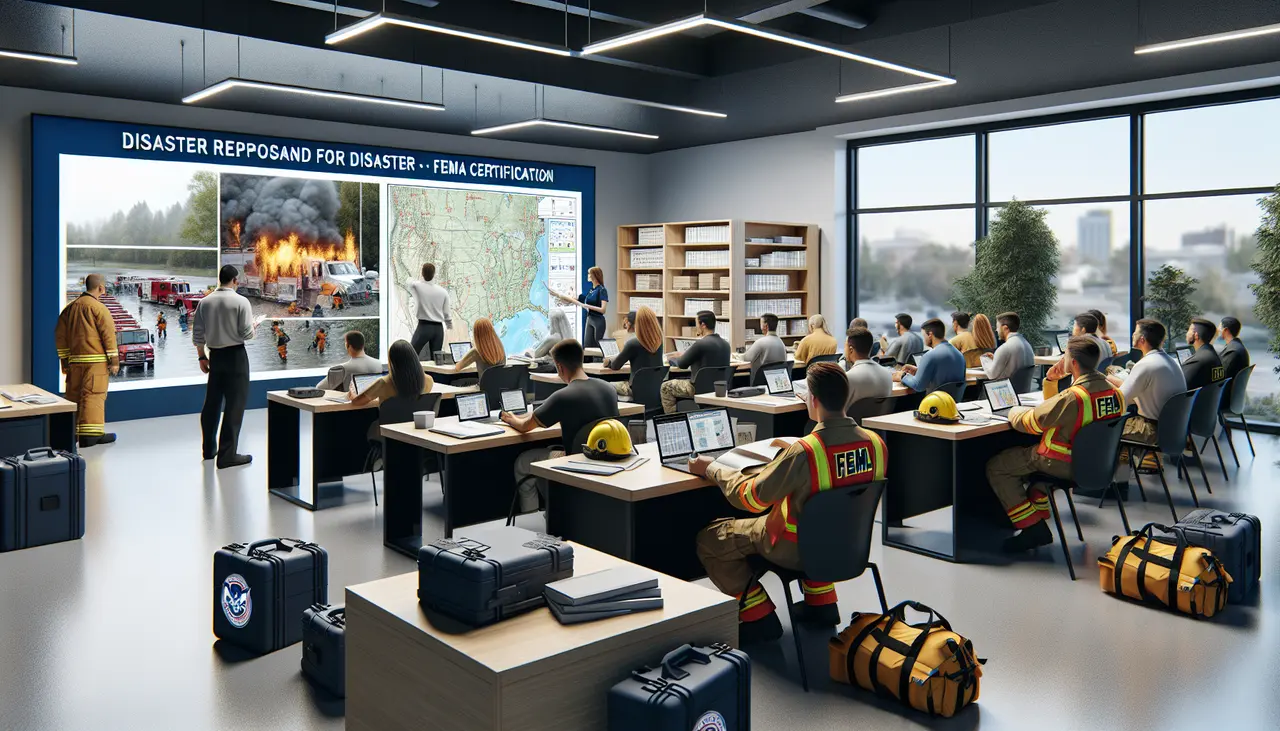
Introduction to FEMA Certification
FEMA Certification is like your disaster response toolkit. Why? Because it prepares you for what to do when unexpected disasters hit. This training is offered by FEMA, which stands for the Federal Emergency Management Agency. It’s part of the U.S. Department of Homeland Security, and its main job is to deal with disasters that are too big for local and state authorities to handle alone. By getting certified, you learn the ropes of effectively managing relief efforts in times of crisis. This includes understanding how to coordinate with different government and non-government organizations, planning evacuations, and providing support to affected communities. Essentially, it arms you with the knowledge and skills needed to jump into action when every second counts. Consider getting FEMA certified if you want to play a key role in disaster response and recovery. It’s your first big step toward making a real difference when disasters strike.
Understanding the Importance of FEMA Certification in Disaster Response
FEMA certification is your ticket to being a pro at managing emergencies. Think of it as a seal of approval that tells people you know your stuff when disaster strikes. This training gears you up with the knowledge and skills needed to make quick, effective decisions in crises. With FEMA certification, you’re not just reacting; you’re stepping up with confidence, ready to take charge and lead others to safety. This certification covers everything from understanding different types of disasters to coordinating relief efforts and rebuilding communities. It’s about being prepared for the worst and knowing how to bring out the best in those tough times. Plus, having this certification can open doors for career opportunities in emergency management, making it a smart move for anyone looking to make a difference when disasters hit.
Types of FEMA Certifications Available
FEMA, short for the Federal Emergency Management Agency, offers a range of certifications to prepare individuals for disaster response. These certifications are designed to empower you with knowledge and skills for emergency situations. They fall into several categories, each tailored to different aspects of disaster response. First, there’s the Incident Command System (ICS) certification. This program focuses on teaching the principles of incident management and how to operate efficiently within a response team. Next, we have the National Incident Management System (NIMS) certification. NIMS offers a systematic approach to guide departments and agencies at all levels of government, nongovernmental organizations, and the private sector to work together during incidents. Another crucial certification is the Emergency Management Institute (EMI) certificate. EMI provides courses that cover all aspects of emergency management, including preparedness, protection, and recovery. For those interested in the technical side, the Integrated Public Alert and Warning System (IPAWS) certification teaches how to provide timely and accurate alerts to the public. Lastly, for individuals focusing on community resilience, the Community Emergency Response Team (CERT) certification trains volunteers in basic disaster response skills, such as fire safety, light search and rescue, and disaster medical operations. Each of these certifications equips you with different tools and knowledge, ensuring you’re prepared to respond effectively in the face of disasters.
Eligibility Criteria for FEMA Certification
To get FEMA certified, you need to meet some basic criteria. First, you’ve got to be a U.S. citizen. Seems obvious, right? But that’s not all. You also need a valid government ID. This could be your driver’s license, passport, you name it—as long as it proves who you are. Next, being part of an emergency management organization helps. Think local fire department, police department, or a public health team. If you’re already in the mix with these groups, you’re on the right track. Lastly, a clean background check is a must. FEMA takes this seriously to ensure everyone’s safety during operations. So, if you tick all these boxes, you’re eligible to dive into FEMA certification and gear up to help when disasters strike.
The Process of Obtaining a FEMA Certification
To get a FEMA certification, start by understanding which course fits your needs. FEMA offers various free online courses through their Emergency Management Institute. Pick a course that aligns with your role in disaster response. Next, sign up at the FEMA website. You’ll need to provide basic details and get a FEMA Student Identification Number (SID) if you don’t have one. After registration, dive into the course materials. These are designed to be self-paced, so you can work through them on your own time. Each course ends with a final exam. Passing this exam is crucial. Typically, you need a 75% score to pass. Once you pass, you get a certificate directly via email. Remember, staying updated is key, as disaster response methods evolve. So, after getting certified, keep an eye out for more courses to enhance your skills.
Core Competencies Gained Through FEMA Certification
Having FEMA certification under your belt decks you out with a specific set of skills vital for effective disaster response. It’s not just a piece of paper; it’s proof that you’ve mastered the core competencies needed to handle emergencies. First off, you grasp the National Incident Management System (NIMS), which means you understand the playbook everyone uses during crisis situations. This common language for managing incidents ensures everyone is on the same page, which is crucial for coordinated responses. You also dive deep into understanding disaster psychology, learning how people might react in emergencies and how to best support them. This knowledge helps in reducing chaos and providing comfort. Moreover, you get skilled in creating and executing effective disaster response plans, an ability that saves lives by ensuring quick and organized actions are taken. Effective communication is another key area. You learn to convey critical information clearly and efficiently, which can make all the difference when time is of the essence. In a nutshell, FEMA certification sharpens your ability to lead, plan, communicate, and empathize, making you a formidable asset in any disaster response team. It’s practical, hands-on learning that equips you to make a real difference when it matters most.
How FEMA Certification Enhances Your Role in Emergency Management
FEMA Certification teaches you the ropes of managing disasters. When you’re certified, you handle emergencies with more skill. You understand the system, from how to assess risks to organizing relief. This certification is a big deal—it shows you’ve got what it takes to be on the front lines, making hard decisions and saving lives. It’s about knowing how to coordinate with different agencies, making sure help goes where it’s needed most. You learn best practices for emergency management, meaning you’re set to make a real difference when disaster strikes. Plus, this certification can boost your career, making you a strong candidate for leadership roles in emergency response teams. In short, FEMA Certification doesn’t just teach you; it prepares you to lead in the toughest times.
Real-Life Applications: FEMA Certification in Action
Getting FEMA certification equips you with the skills to manage emergencies effectively. It’s not just about reading manuals or filling out paperwork; it’s about being ready for real-world crises. Imagine being the person who coordinates shelter for hundreds after a hurricane or the one who plans the distribution of essential supplies in a flood-hit area. That’s what FEMA certification prepares you for. You learn how to analyze disaster situations, make quick decisions, and lead recovery efforts. This knowledge isn’t just theoretical. Certified individuals play crucial roles in disaster response teams, working alongside local authorities and communities to rebuild after calamities. They ensure that the response is efficient, resources are utilized wisely, and, most importantly, lives are saved. Whether it’s strategizing evacuations or managing relief operations, the practical skills gained from FEMA certification are invaluable in emergency situations.
Tips for Maintaining and Renewing Your FEMA Certification
Renewing your FEMA certification isn’t tough but it’s key to staying on top of your game in disaster response. First, keep track of your certification expiration date. Missing this is like forgetting your umbrella in a storm - not smart. Every FEMA course has its own renewal rules. Some certs need you to retake a course, others ask for a refresher. It’s all about staying sharp. Make a habit of checking FEMA’s website or reaching out to their support for the latest on your certification requirements. Look, it’s not just about ticking a box. Participate in additional training and exercises when you can. This isn’t just to pad your resume; it’s about being the best responder you can be. The more you train, the more lives you save. Simple. Lastly, document everything. Every course, every drill, every real-world response you’re part of. When renewal time comes, you’ll need that info, and it proves you’re not just going through the motions. Keep these tips in mind, and your FEMA certification won’t just be a badge—it’ll be a testament to your commitment to making a difference when disaster strikes.
Conclusion: Empowering Your Disaster Response Career with FEMA Certification
Getting FEMA certification is like putting a power tool in your career toolbox. It doesn’t just tick a box for a requirement; it equips you with the knowledge and skills to handle emergencies with confidence. By understanding the ins and outs of disaster response, you’re not just another person on the scene; you become a key player in managing crises effectively. This certification opens doors to numerous opportunities in emergency management, making you a desirable candidate for various roles. Whether you’re aiming to enhance your current position or pivot to a new career path in disaster response, FEMA certification sets you apart in the field. It’s an investment in your professional growth and in your ability to contribute significantly during times of need. So, when thinking about your future and where you want to make an impact, remember that becoming FEMA certified is a powerful step forward.

